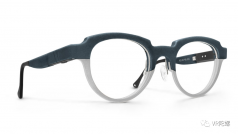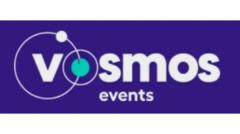近几年来,进军智能眼镜市场的勇士们多以失败告终。谷歌(Google)眼镜从来就没获得过机会,Snap Spectacles的鼎盛时期也早已结束。尽管如此,这一切还是未能拦住英特尔(Intel)的脚步。
英特尔将其智能眼镜取名为Vaunt,并最早在The Verge上曝光。Vaunt的外观和普通眼镜并无差异,与其他外形笨重外加一块特殊屏幕的智能眼镜不同,英特尔Vaunt眼镜边框简洁,重量不超过50克(相当于Snap Spectacles的重量),可以配有度数或没度数的镜片,眼镜上也不装有摄像头。

从外观来看
你就像戴了一副Warby Parkers品牌的眼镜。
不过,眼镜内部装有一个低功率一级激光器、一个处理器、一个加速器、一个蓝牙芯片和一个指南针。
对于这款激光器,英特尔表示其“功率极低,属于最基础的一级激光器”,可向眼内投射400 x 150像素的单红色图像。


你可以通过这些图像得知某人生日近了,并查看手机上的通知。此外,眼镜还能感知你正在厨房,并给你发送一份菜谱。由于激光直接打入你的视网膜,因此图像异常清晰。
未来的机型中将会加入麦克风,或连接智能助手Alexa或Siri等功能。而第一代Vaunt机型主要通过细微动作控制,比如点头。英特尔希望这款眼镜可以自然融入你的日常生活。

我们对Vaunt眼镜将如何推出市场尚不得知,但英特尔表示它很有可能采取OEM模式,而不是自己出售这些眼镜。
此外,英特尔在推出先期项目和SDK后,还将向开发者开放平台。
尽管这款产品推出市场后是否能成功有待观察,但英特尔的Vaunt确实是我们迄今为止见过最具潜力的“智能眼镜”。不过,由于项目仍在早期开发阶段,没人能保证它是否会最终成功落地。

In recent years, the warriors who have entered the market for smart glasses have failed. Google glasses have never had a chance, and Snap Spectacles are long gone. All this, though, has not stopped Intel.
Intel named its smart glasses Vaunt and was first exposed on The Verge. Vaunt appearance and ordinary glasses no difference, and other bulky appearance, coupled with a special screen smart glasses, Intel Vaunt glasses frame is concise, weight is less than 50 grams (equivalent to Snap the weight of the doubtful), can be equipped with or without readings lenses, glasses are not equipped with cameras.

From the outside,
you look like you're wearing a Warby Parkers brand.
The glasses, however, contain a low-power primary laser, a processor, an accelerator, a bluetooth chip and a compass.
For the laser, Intel says it is "extremely low power, the most basic level of laser," and can project a single red image of 400 x 150 pixels into the eye.


You can tell by these images that someone is close to their birthday and check the notifications on their phones. In addition, the glasses can sense that you are in the kitchen and send you a recipe. Because the laser is directly into your retina, the image is unusually clear.
Future models will include microphones, or functions such as connecting smart assistant Alexa or Siri. The first generation of Vaunt models were dominated by subtle movements, such as nodding. Intel hopes the glasses will naturally fit into your daily routine.

We don't know how we're going to launch Vaunt, but Intel says it's likely to adopt an OEM model instead of selling them on its own.
In addition, Intel will open the platform to developers after the launch of the advanced project and SDK.
While it remains to be seen whether the product will be successful, Intel's Vaunt is indeed the most promising "smart glass" we've seen so far. However, since the project is still in its early stages, no one can guarantee that it will eventually fall to the ground.
【本文由haloVR发布,2018年02月07日】
















